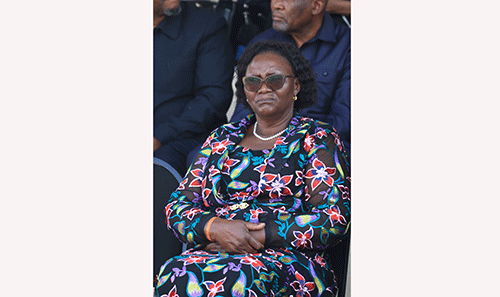Icelandic companies at the centre of the fisheries bribery scandal will not get the opportunity to cross-examine prosecutor general Martha Imalwa and whistleblower-turned-State-witness Jóhannes Stefánsson after the High Court dismissed their appeal last week.
Judge Orben Sibeya said the companies have failed to convince the court that if granted leave to petition the Supreme Court, they will be successful in their endeavour.
Furthermore, an application for “referral for oral evidence is not appealable mid-stream”.
In his ruling, Sibeya said the companies missed a great point in their application.
“What is material in the pending application for the restraint order brought by the prosecutor general is whether she will succeed in convincing the court that the applicants are to be charged or not,” said Sibeya.
He added should the prosecution fail to extradite the Icelandic directors for the criminal trial and thus fail to charge them, then there will be no conviction and ultimately no confiscation order.
This, he said, “may render the applicant’s call to cross-examine Imalwa unnecessarily, and at the same time cause injustice to the applicants”.
The court further concluded the argument by the companies that Stefánsson will not testify amounts to speculation.
With the dismissal of the application, the court ordered the fishing companies to bear the cost of the suit.
The companies, Esja Holdings, Mermaria Seafood Namibia, Saga Seafood, Heinaste Investments, Saga Investment and Esja Investments wanted leave to petition the Supreme Court over the High Court’s refusal to grant them the opportunity to cross-examine Imalwa and Stefansson in her application to have their assets declared forfeited to the State.
It was the companies’ argument that they will never know the true facts on which Imalwa based her decision to charge the companies through their executives – Ingvar Juliusson, Egill Helgi Arnason and Adelsteinn Helgason – and her claims of locating and extraditing them so they may stand trial in Namibia.
Furthermore, the court erred when it accepted her mere explanation that her “office, together with Interpol, are still trying to locate the whereabouts of the foreign directors, and that no formal request for their extradition was submitted to Iceland”.
They further said, without locating the foreign directors in a jurisdiction where they can be successfully extradited, they can never be charged.
Imalwa’s legal team argued the law does not permit for Imalwa to testify in civil proceedings.
They said a restraint order does no more than preserve property with a view to possible confiscation proceedings following a criminal trial, and final confiscation orders are merely designed to strip convicted criminals of the benefits of their crimes and not to add to their punishment.
The proceedings at hand are civil and not criminal from beginning to end.
It is their argument that the Icelandic companies do not have any legal standing to bring forth an application in Namibian courts, as they are “fugitives” from the law.
The fishing companies are accused of paying at least N$103 million in bribes to politicians and businessmen to get a competitive advantage in securing fishing quotas in Namibia. – mamakali@nepc.com.na


